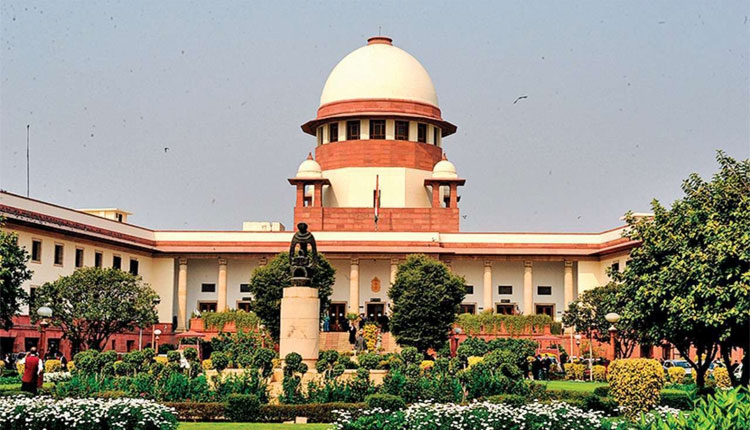New Delhi: The Supreme Court of India is poised to deliver its verdict tomorrow (Monday) on a batch of petitions challenging the validity of the abrogation of Article 370 of the Constitution, which granted special status to Jammu and Kashmir. This decision comes after two weeks of extensive hearings.
The decision will come from a five-judge panel under the direction of Chief Justice D.Y. Chandrachud. The bench includes Justices Sanjay Kishan Kaul, Sanjiv Khanna, B.R. Gavai, and Surya Kant.
The petitions argue that the central government’s 2019 decision to revoke provisions of Article 370 was unconstitutional. Senior advocates Kapil Sibal, Gopal Subramanium, Rajeev Dhavan, Dushyant Dave, and Gopal Sankaranarayanan represented the petitioners.
Their arguments centred on the unique circumstances surrounding Jammu and Kashmir’s accession to India and the state’s subsequent special status. They emphasised that Jammu and Kashmir had a separate Constituent Assembly, dissolved in 1957 after completing its work. The petitioners argued that the removal of Article 370 required the consent of this Assembly, rendering its current status permanent. Therefore, they believe Parliament’s decision to remove it was legally flawed.
Furthermore, the petitioners contended that the central government arbitrarily disregarded the state legislature’s special powers and its distinct constitutional position. They assert that dividing the state without obtaining the consent of the state representatives (the Legislative Assembly) violated the federal structure between the Centre and the state.
Attorney General R. Venkataramani, Solicitor General Tushar Mehta, Harish Salve, Mahesh Jethmalani, Maninder Singh, and Rakesh Dwivedi defended the decision on behalf of the central government. They argued that the state legislature was formed by dissolving the constituent assembly, and in the absence of the Assembly during President’s Rule, the Centre holds the authority to make decisions with parliamentary approval. They further maintained that the procedure followed was not inconsistent with the Constitution’s fundamental principles nor did it infringe upon the federal structure.
In their arguments, the central government emphasised national security and the well-being of the people of Jammu and Kashmir as key factors behind the decision to abrogate Article 370. Attorney General Venkataramani highlighted the importance of national integrity, while Solicitor General Mehta focused on the disadvantages faced by non-residents of the state due to Article 35A, which was also abrogated alongside Article 370. He argued that these changes brought equality and full citizenship rights to a previously disenfranchised population.
The Supreme Court’s verdict tomorrow will hold significant implications for the future of Jammu and Kashmir and its relationship with the Indian government.



Comments are closed.